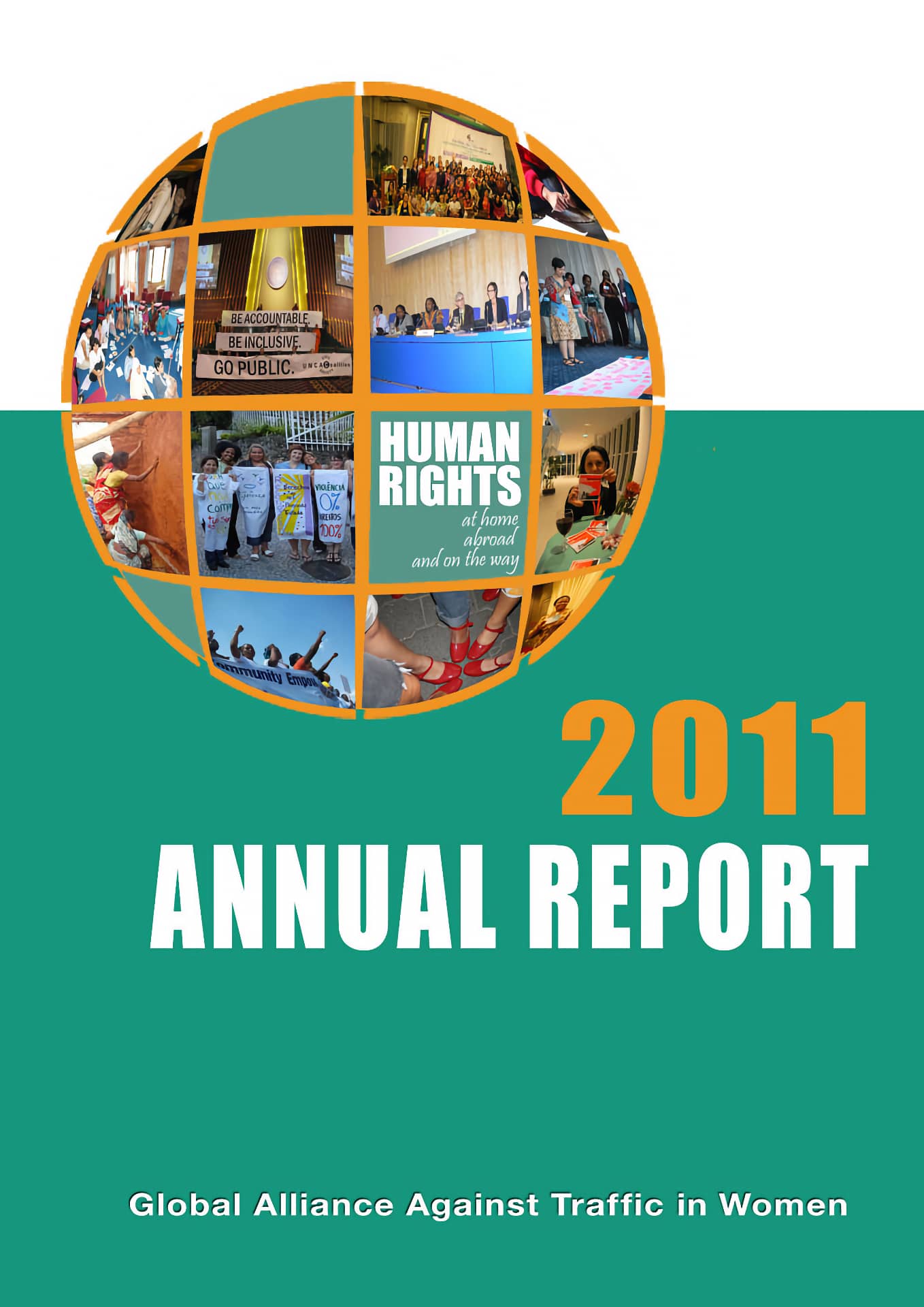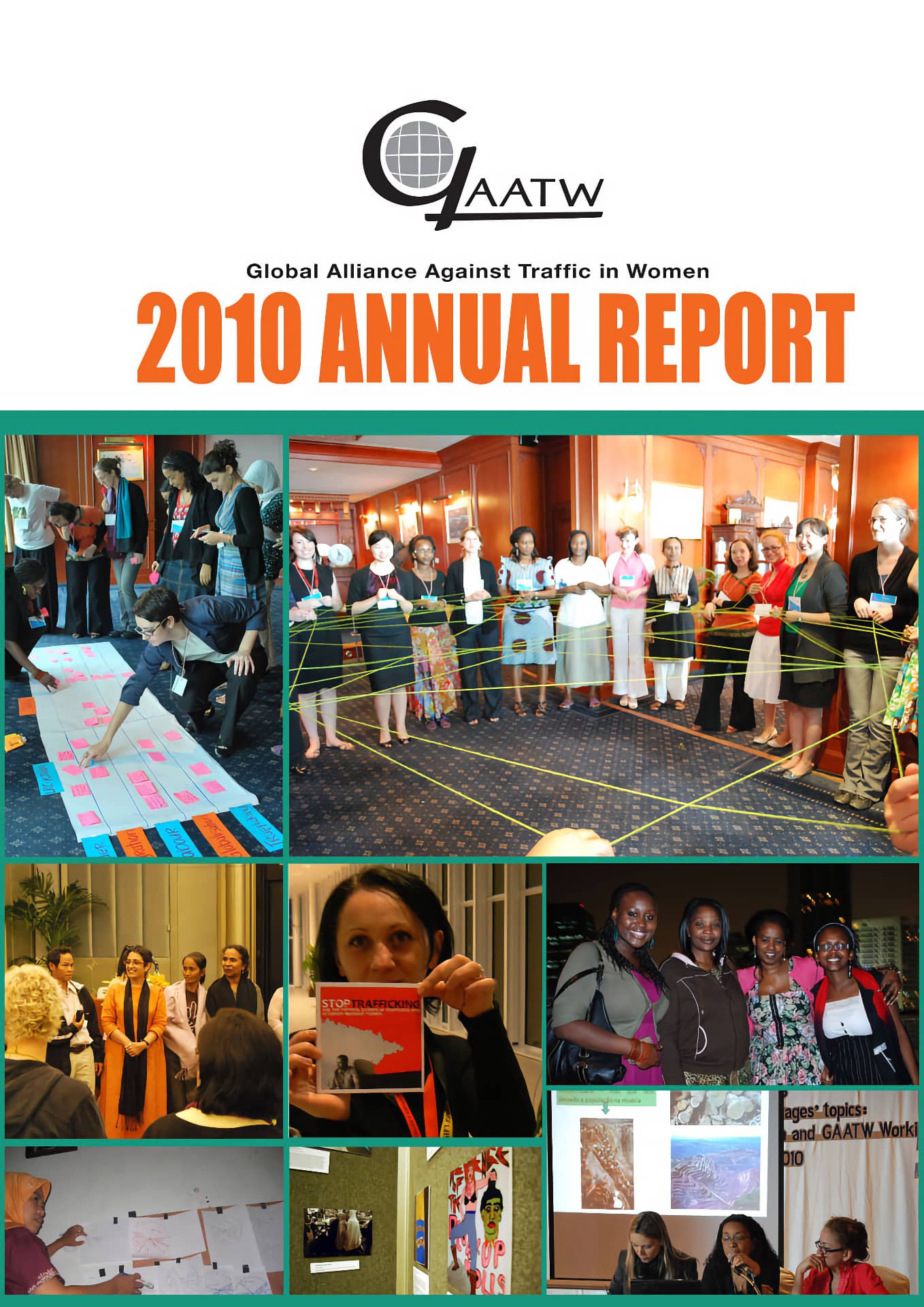
2011 GAATW Annual Report
2011 marked the beginning of GAATW’s 2011-2013 activity cycle. During this year, we began many of our programmes outlined in our multi-annual proposal.
Our 2011-2013 plans focus on creating and increasing spaces for civil society to influence global anti-trafficking efforts. This includes: (1) calling for accountability in anti- trafficking through the creation of an inclusive and transparent review mechanism to UNTOC, researching monitoring and evaluation methods in anti-trafficking; (2) strengthening women’s power in migration and labour processes through our work on labour exploitation, smuggling, and the impact of demand discourses on sex workers; (3) engaging with UN Human Rights Treaty Bodies as a strategy for Members to access justice (e.g. capacity-building, compiling cases); and (4) ongoing communications work to produce and disseminate information within the Alliance and the broader anti-trafficking sector.
Instead of convening regional members meetings or global thematic meetings, IS staff spent more time working with members in specific countries. This resulted in some really good research publications that have now been disseminated widely. The round table we held on smuggling resulted in the UNOHCHR getting interested in the issue and a joint expert consultation in Geneva is being discussed. This new strategy of working closely with members and allies in their home country provided the IS with the much needed on-the ground knowledge and understanding.

2010 GAATW Annual Report
2010 marked the end of GAATW’s 2008-2010 activity cycle. During this year, we completed many of the priorities we outlined at the end of 2007.
Reassessing the anti-trafficking terrain and strengthening the Alliance
During the first part of this activity cycle, there was an effort to reassess the anti-trafficking terrain and our role within the anti-trafficking arena. Over the past 3 years, there was a concerted effort to strengthen the Alliance, and the links between regional priorities and the work of the International Secretariat. In 2008-2009, GAATW held four regional consultations. In 2009-2010, GAATW organised a feminist participatory action research initiative with 12 Member Organisations and allies.
Our Alliance strengthening work also involved direct engagement with self-organised groups. GAATW has always highlighted the pivotal role of women directly affected by trafficking and/or anti-trafficking measures (such as trafficking survivors, migrant women, sex workers, rural women, women workers, and returnee migrants). Over the past few years, this has involved organising capacity-building activities, producing advocacy products, facilitating organising efforts, and providing material and educational support.
